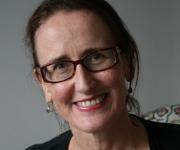FANCY some liposuction with your beach holiday? Or perhaps some cosmetic dentistry? Then Thailand has the package for you.
Those looking to purchase a kidney or engage in some experimental stem cell therapy are more likely to pack their bags for India, assuming they are not overly burdened by ethical or safety concerns.
Precise figures are hard to come by, but there’s a general consensus international medical tourism is booming. Some have put the annual value of the industry worldwide as high as $US500 billion ($A480 billion).
The growth has been driven partly by lack of access to desired services in the patient’s home country and — perhaps more importantly — by the huge cost difference between developed and less developed nations when it comes to medical procedures.
Australians seeking cut-price cosmetic surgery, for example, are spoilt for choice. A host of businesses have sprung up advertising all-inclusive packages to various Asian countries online and even in the pages of airline magazines.
These “facilitators” will organise travel and accommodation as well as medical services in the destination country.
While some businesses are no doubt reliable and ethical, it’s not easy for consumers to be assured of that in a largely unregulated market.
The Department of Foreign Affairs warns potential customers of the dangers of discount or uncertified medical facilities. “Be aware that while the range of medical and dental services available may be impressive at first sight, standards can be low resulting in serious and possibly life-threatening complications”, DFAT advises.
Canadian researchers have tried to cast some light on the industry by interviewing facilitators in that country about how they saw their role in relation to patients and the domestic health system.
Their research, published in the Journal of Medical Ethics last week, raises some important questions, such as the lack of financial transparency if there is a failure to disclose the commissions facilitators received from overseas providers.
The researchers cited one operator quoted in the press as saying: “Our ethics are agnostic”.
Shonky — even ethically agnostic — operators probably wouldn’t agree to participate in a study looking at their work practices and attitudes, so it’s no surprise the 12 facilitators interviewed by the Canadian researchers seemed to take their responsibilities somewhat seriously.
“From an ethical standpoint, my responsibility to the patient is basically the same as if … I was that patient’s physician”, one said. “I really am that patient’s physician one-step removed.”
Hmm. Without the training, professional standards or external regulation, but otherwise just like a doctor?
Whatever concerns we may have about it, international medical tourism is probably here to stay, which raises important questions for regulators and the medical profession.
The Canadian facilitators spoke of the antagonism they encountered from local doctors, an attitude that, while understandable, doesn’t necessarily serve patients in need of trustworthy and disinterested advice terribly well.
So how should an Australian doctor respond if a patient announces their intention to seek medical care overseas?
The question raises a host of ethical and professional conundrums — not to mention potential liability issues — but perhaps it is one that needs some serious consideration.
Jane McCredie is a Sydney-based science and medicine writer.
Posted 29 August 2011

 more_vert
more_vert
Good medicine is expensive, so what is missing in these overseas clinics? We have seen many complications and aftercare is a necessary and essential part of good care. If it is not provided by the doctor it should not be performed by the doctor .
Fee-for-service medicine has finally brought us deregulated globalisation to medicine. It will end in the same disasters as deregulated financial globalisation.
Financial deregulation has brought us the promise of eternal growth on a finite planet. Deregulated medicine now promises us eternal individual life for the rich at the expense of all other life on a finite planet. I predict hell on earth.
The ones I have heard of are German surgeons who established a hospital in Bangkok, serving lots of German “customers”. Presumably their expertise as surgeons is as good as in Germany, and the lower accomodation costs mean a German can have their cholecystectomy done plus a month’s holiday at Phuket for a lot less than the cost of just the operation in Germany. As is the case in Australia – choose your surgeon, and leave the facilities to them to decide on.
Not all services overseas are badly performed and not all those done in Australia are well done. The choice to go overseas is the patient’s alone. We should stay out of it as we stay out of other consumer choices a patient makes. Get involved and guess who will be sued if anything goes wrong. If asked for an opinion the answer will be I can not advise you – documented (in triplicate)